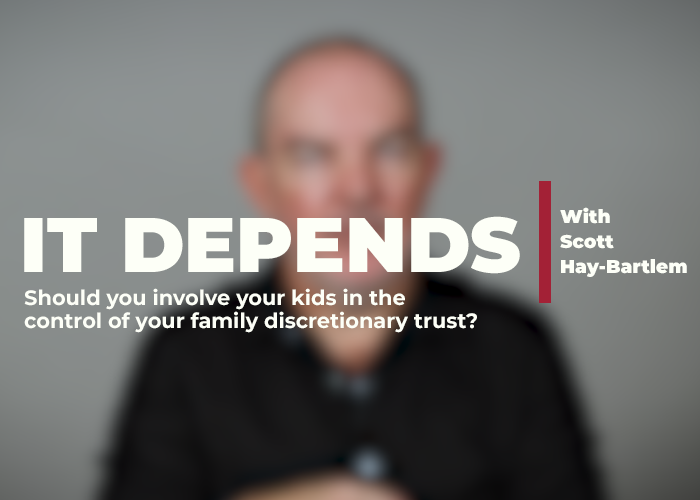A recent decision of the Fair Work Commission in Mr Joshua Brewer v St Columba College Munno Para Inc T/A St Columba College [2018] FWC 7620, provides some interesting commentary for schools about a teacher’s conduct outside of school hours and when such conduct may be a valid reason for summary dismissal.
Facts
The allegations and subsequent investigation by the school concerned the conduct of a teacher towards a 16-year-old female student. The teacher had been employed at the school for approximately seven years and had taught the student in 2016. Previous allegations had also been made against the teacher in 2016 but were unable to be substantiated.
The allegations in the present case, were as follows:
- In the first three months of 2018, the teacher had gone out of his way to frequently attend the Woolworths that the student worked at on Sundays. When at the Woolworths, he would commonly seek to be served at the student’s checkout rather than at another.
- On one occasion while at school, the teacher asked the student if she would be working on Sunday 4 March 2018. She told him she had the morning shift, but the shift was then changed. The teacher entered the store during the afternoon and stood in her line. The student’s evidence was that, after exchanging pleasantries, ‘he said that he had done his big shop that morning, but had not seen me, and had come back hoping he would see me’.
- During a school sports day, on 8 March 2018, the teacher asked the student to rake the long jump pit during the year 7 long jump. The event lasted approximately half an hour and a conversation took place between the teacher and the student. There was conflicting evidence in relation to that conversation:
- The student alleged that the teacher raised the subject of the student’s boyfriend and said words to the following effect:
- He’s not nice enough for you. I can treat you better. I can be your sugar daddy. I can pay you small allowances. We can drink red wine. You can give me neck massages.
- The teacher alleged that he discussed the student’s weekend with her, and that he discussed his wife and how she likes to get massages on weekends. He said he stated that if he were rich, he wouldn’t have had to do that stuff (referring to working at the school). He also alleged that the student raised the subject of her boyfriend and that she asked him about his family.
- The teacher denied making any comments about being a sugar daddy, or that he offered to pay the student or mentioned drinking wine with her.
- The student alleged that the teacher raised the subject of the student’s boyfriend and said words to the following effect:
Decision
The Commission carefully considered the evidence that had been provided by all parties in some detail and found that there were substantial factual discrepancies between the evidence of the teacher and the student. However, the Commission preferred the evidence of the student as it was presented with less evasion and was more credible, more consistent with objectively established and uncontested facts and was more plausible having regard to the evidence as a whole, including contemporaneous documentary material.
In particular, the Commission was of the view that the student’s evidence about the conversation in the sandpit was reliable in substance, even though it may not have been exacting in every respect.
The Commission also made a specific finding that the teacher had said to the student that he could be her sugar daddy. Having substantiated the student’s allegations, the Commission held that they were a valid reason for Mr Brewer’s dismissal, finding as follows:
Whilst the line between social discussion and discussion of schooling matters between a teacher and student may not be black and white, Mr Brewer crossed that line in discussing his marriage, his wife, his desire to be rich and be elsewhere enjoying life rather than working at the school and passing critical observations about [the student]’s boyfriend. This is particularly so given that Mr Brewer had been previously cautioned that comments by him to students were capable of being misinterpreted.
The Commissioner also noted that ‘even on Mr Brewer’s version of events he was dismissed for a valid reason in that he engaged in conversation that was a breach of his professional duty’.
The Commissioner also went on to determine whether the teacher’s interactions with the student at her workplace would have constituted a valid reason for dismissal, finding that
there is nothing improper in a teacher shopping for legitimate purposes at a supermarket (even a distant supermarket) in their private time irrespective of whether they know students of their school are working or may be working at that store. A supermarket is a place frequented by the public, not a private setting.
However, the Commissioner was of the view that the teacher’s conduct went further than this. While it could not be established that the teacher had visited the supermarket twice on 4 March 2018, there was sufficient evidence to suggest that teacher was:
- seeking the student out at her workplace on Sundays during 2018 by attending frequently, seeking to be served by her and engaging in conversation with her
- regularly asking the student about her weekend working commitments in advance.
This conduct was found to go beyond the right of the teacher to lawfully make purchases at a supermarket in his own time and intruded unreasonably into the private working life of the student. The Commission determined that this conduct would have been a valid reason for dismissal.
Learnings
The Commission was willing to overlook its minor criticisms of the investigative and decision-making processes because the teacher was ‘afforded a fair go all-round’.
The fact that a staff member has been previously warned about the appropriateness of their conduct with students and continues to engage in inappropriate behaviours, can be considered when making a decision whether to dismiss that individual.
While schools must respect a teacher’s right to live an ordinary life outside of school, this does not mean that schools cannot consider teachers out-of-hours behaviours when making decisions in relation to their employment.





